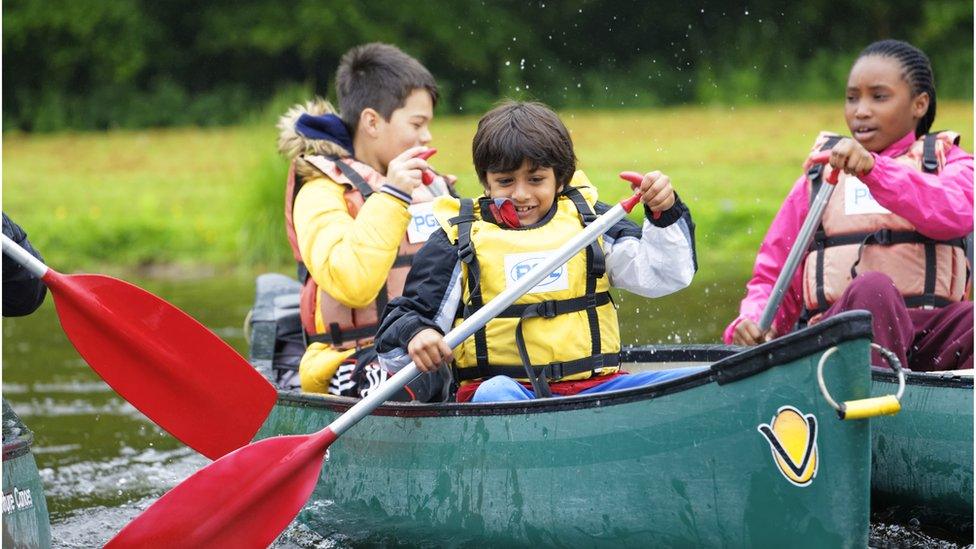Should all pupils get the right to an outdoor education week?
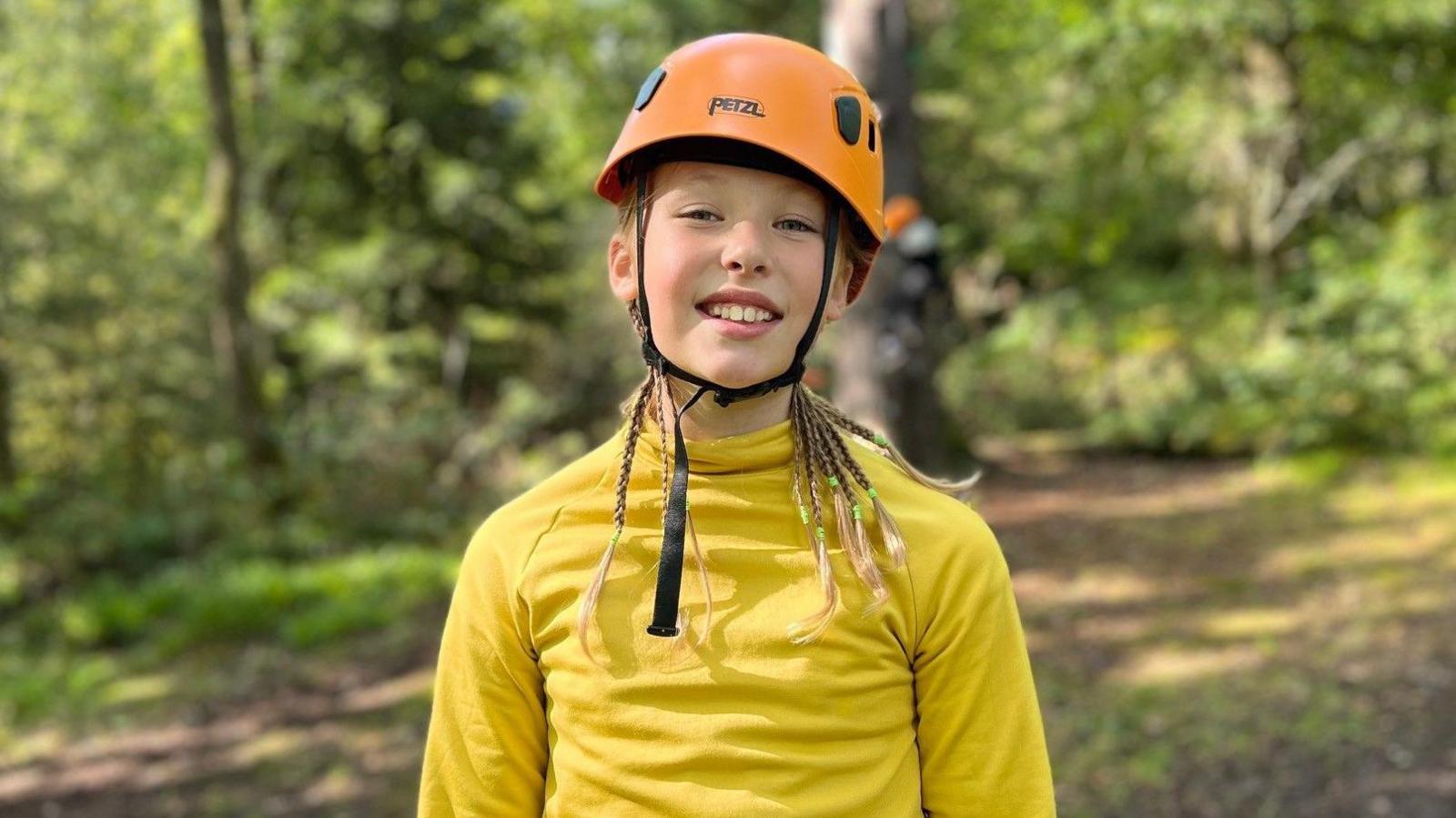
Orla was nervous to climb so high on her activity but felt "super proud" after facing her fear
- Published
In a matter of days the government will make a decision that could affect generations of children to come.
For many, the Primary 7 outdoor residential trip is one of the highlights of their school days. For some, it is inspirational, even life-changing.
A members bill making its way through the Scottish Parliament would guarantee a week of residential outdoor education for every pupil.
When it was put first put forward by Conservative MSP Liz Smith, the Schools (Residential Outdoor Education) (Scotland) bill, external won majority support,
But it faces what could prove to be an insurmountable obstacle. Without government financial backing it looks doomed to fall.
And at a time when budgets are already tight, not everyone is convinced such a commitment is the best use of resources.
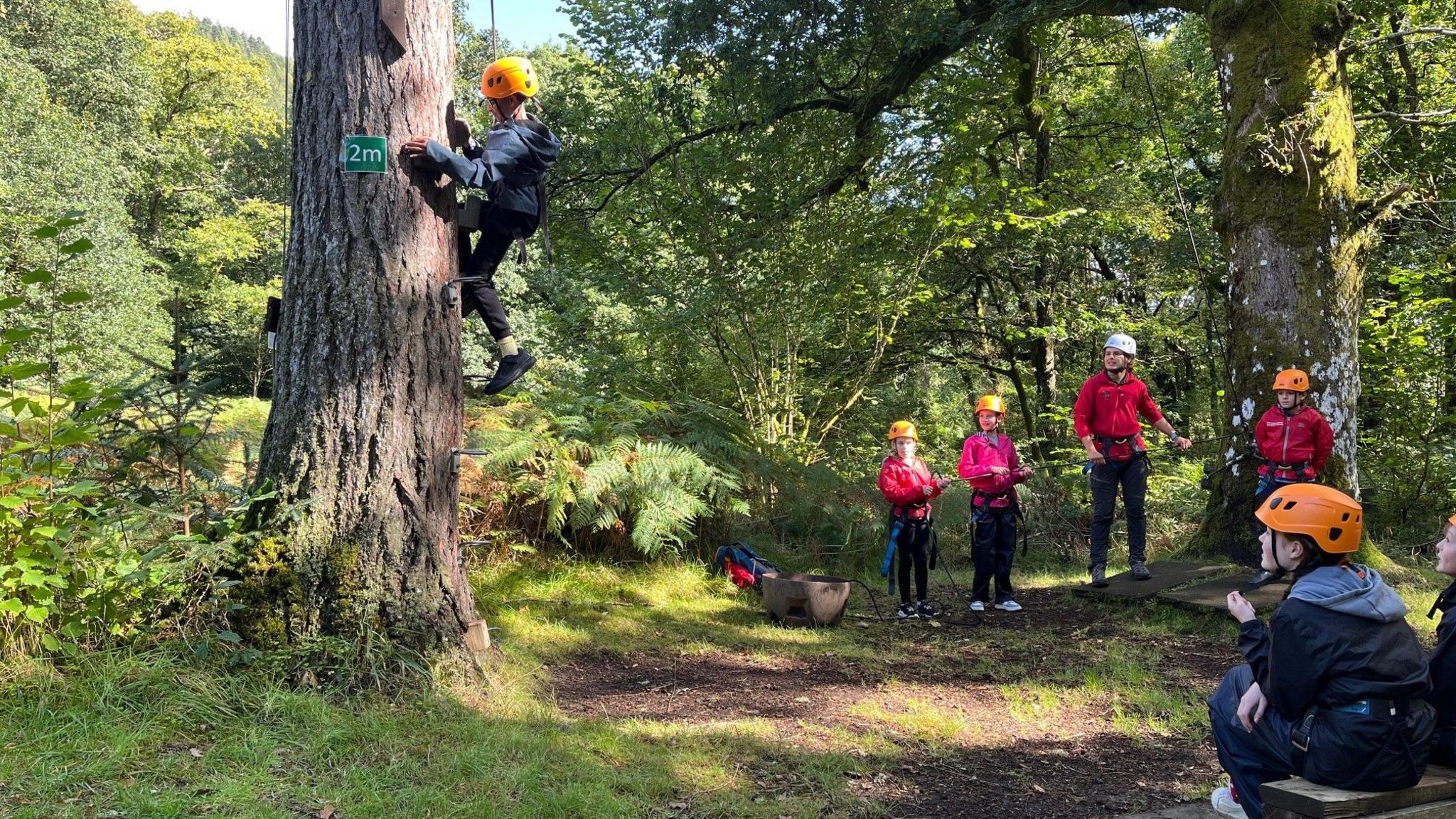
Experts believe children learn much more than outdoor skills on outdoor courses like those at Dounans in Aberfoyle
Liz Smith, herself a former teacher, says she has seen the benefits of outdoor education first hand and wants to ensure every child gets the opportunity during their time at school.
Her proposed new law would mean every pupil in Scotland is entitled to four nights and five days of outdoor education.
But while it was backed in principle in March, it cannot proceed unless the government tables a financial resolution - and so far that hasn't happened.
Smith believes the experience of outdoor education can be transformative for children.
"I think we should be trying to level up, to ensure that young people, whoever they are, whatever their background, whatever their family circumstances, they should have that opportunity."
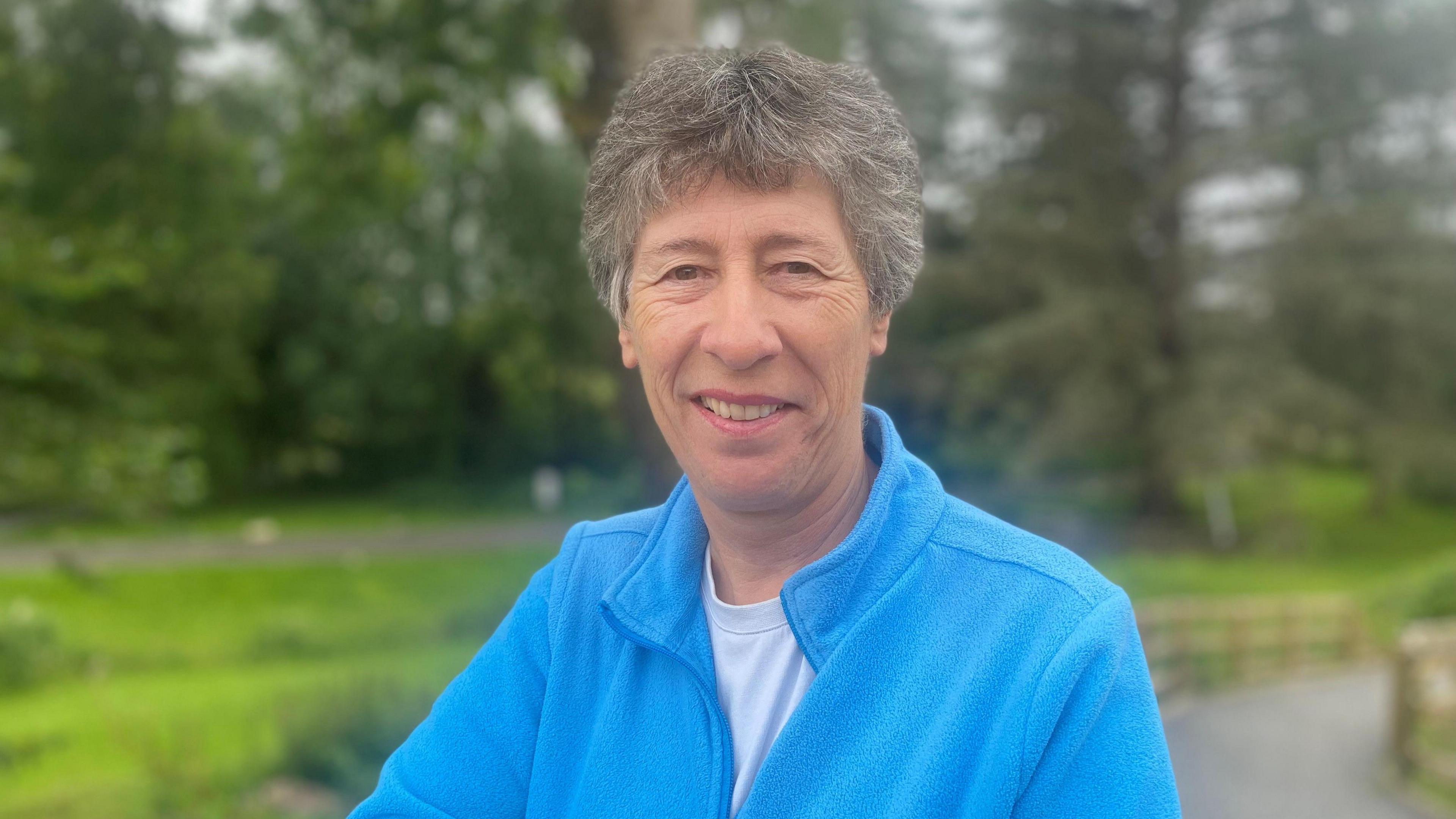
Conservative MSP Liz Smith, a former teacher, is promoting the bill to give all children a residential outdoor experience
She argues the benefits are powerful - and backed up by evidence.
"The statistics we have show that if they have participated in residential outdoor education, their attendance is better, their behaviour is better, their self-discipline is better.
"What could be better than that?"
But there is a postcode lottery in provision of residential outdoor education, with research for the University of Edinburgh stating that just a third of secondary schools and only a quarter of primary schools offer this type of experience.
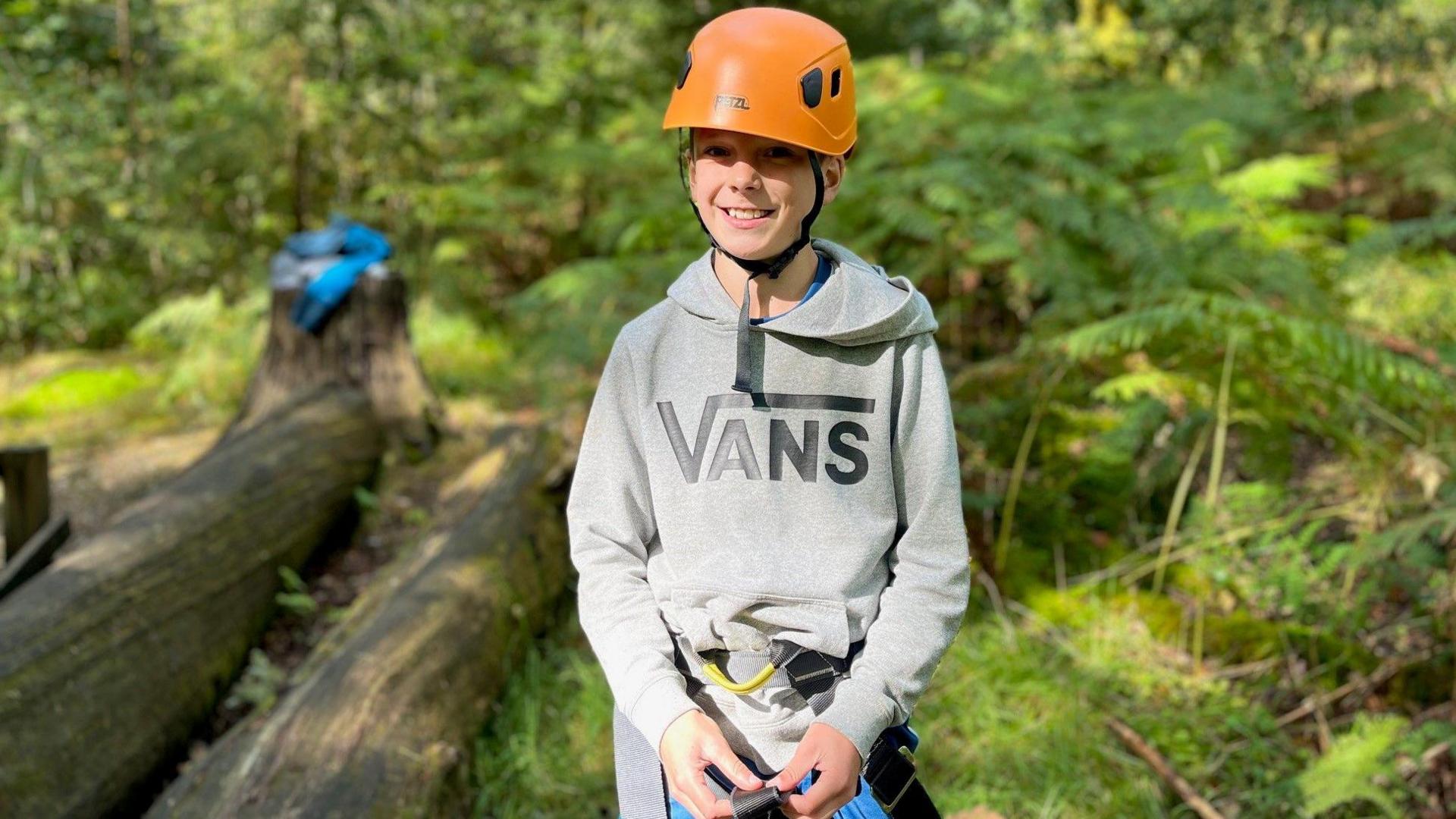
Harris was proud of himself for reaching the top of a tree near the Dounans centre
Thirty minutes from Glasgow, Dounans outdoor education centre, in the Loch Lomond and The Trossachs National Park, gives school groups a taste of the outdoors.
A Primary 7 group from Fife is spending a week taking part in activities like canoeing, tree climbing and raft-building.
Harris, 11, was first to climb to the top of a tall tree as his classmates looked on.
"When everyone was cheering me on that helped," he said. "I was proud of myself for doing that because it was really high."
Ten-year-old Orla was next.
"I was nervous and shivery and thought it did look pretty high.
"It was like a feeling of accomplishment - I felt super happy and joyful."
One of the biggest problems though is that the experience doesn't come cheap.
Liz Smith estimates the policy would cost between £25m and £40m a year.
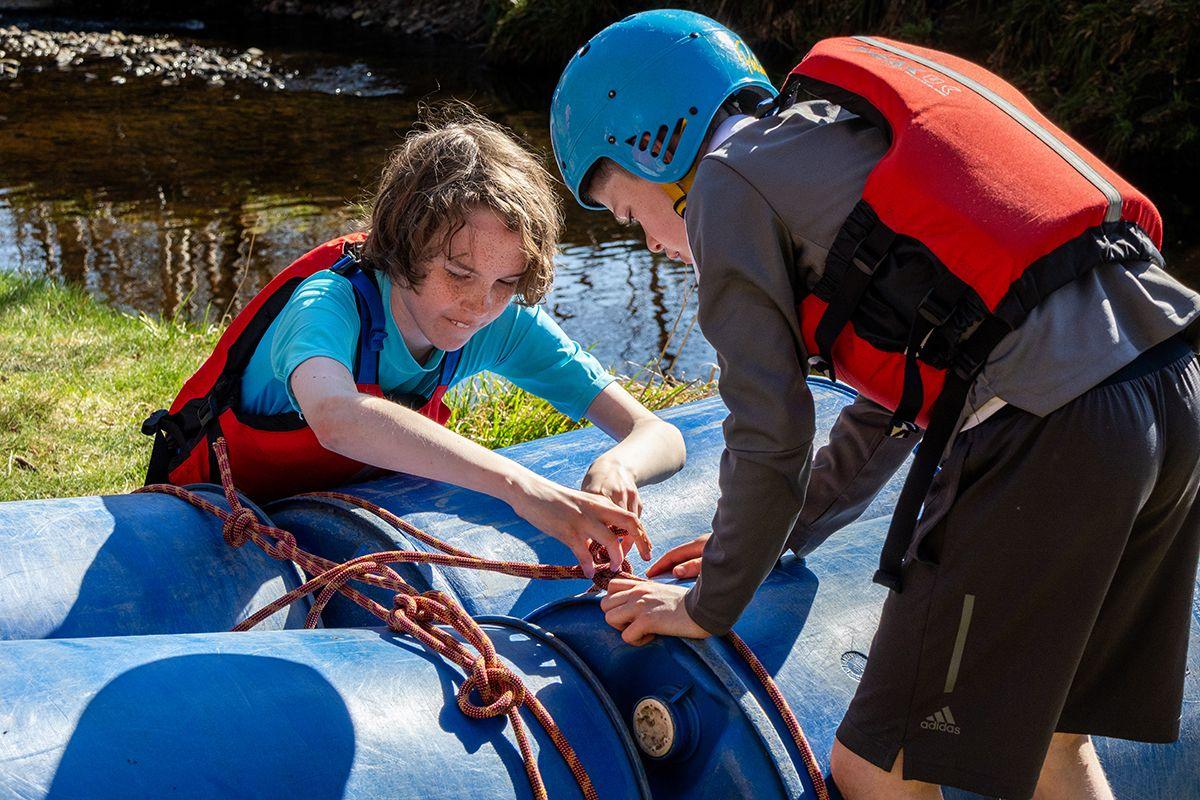
Liz Smith believes children who experience residential courses have better attendance, better behaviour and better self-discipline
The minister for children, Natalie Don-Innes, told MSPs that was unaffordable and ringfencing cash for outdoor education could be to the detriment of other activities.
She said: "Where would you seek to cut funding from in education? Would it be our teachers, our schools, would it be nurseries or our colleges? "
A Scottish government spokesman said: "Both the education committee and the Scottish government have been clear that outstanding issues on the affordability of the bill, impact on the education workforce and ensuring provision is equitable for children across Scotland, need to be addressed before a decision can be taken to lodge a motion for a financial resolution."
The Convention of Scottish Local Authorities (Cosla) also has concerns about the practicalities, questioning the impact on staffing, the costs of transport and what it would mean for schools' ability to take part in other trips relating to geography, history or the arts.
But the Outward Bound Trust believes it would be an investment.

Outward Bound chief executive Martin Davidson says children learn about themselves when they take part in activities
It has highlighted the findings of a global study across eight countries, including the UK, which concluded that for every £1 invested in Outward Bound programmes, there is a return of between £5 and £15 in societal value.
Chief Executive Martin Davidson said: "Outward Bound doesn't teach young people to canoe or to climb, what we teach young people is about themselves.
"But we do that through fantastic adventures and outdoor activities that help them learn about themselves and working with others."
The Scottish Parliament will continue to grapple with the issues in both the chamber and in committee over the next couple of days.
But time is running out. If the funding issues aren't resolved by the end of the month, the legislation will fall, despite having the backing of most MSPs.
Related topics
- Published29 February 2020
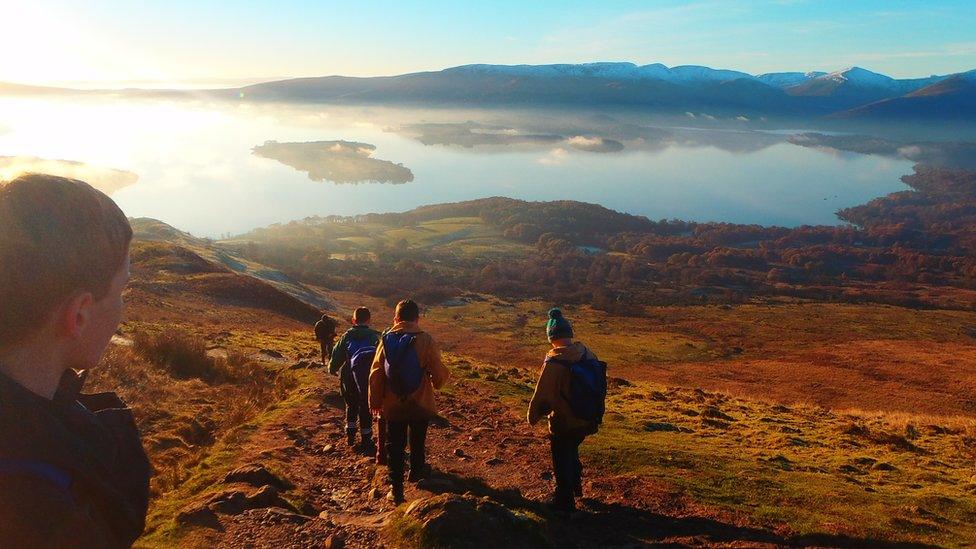
- Published18 January
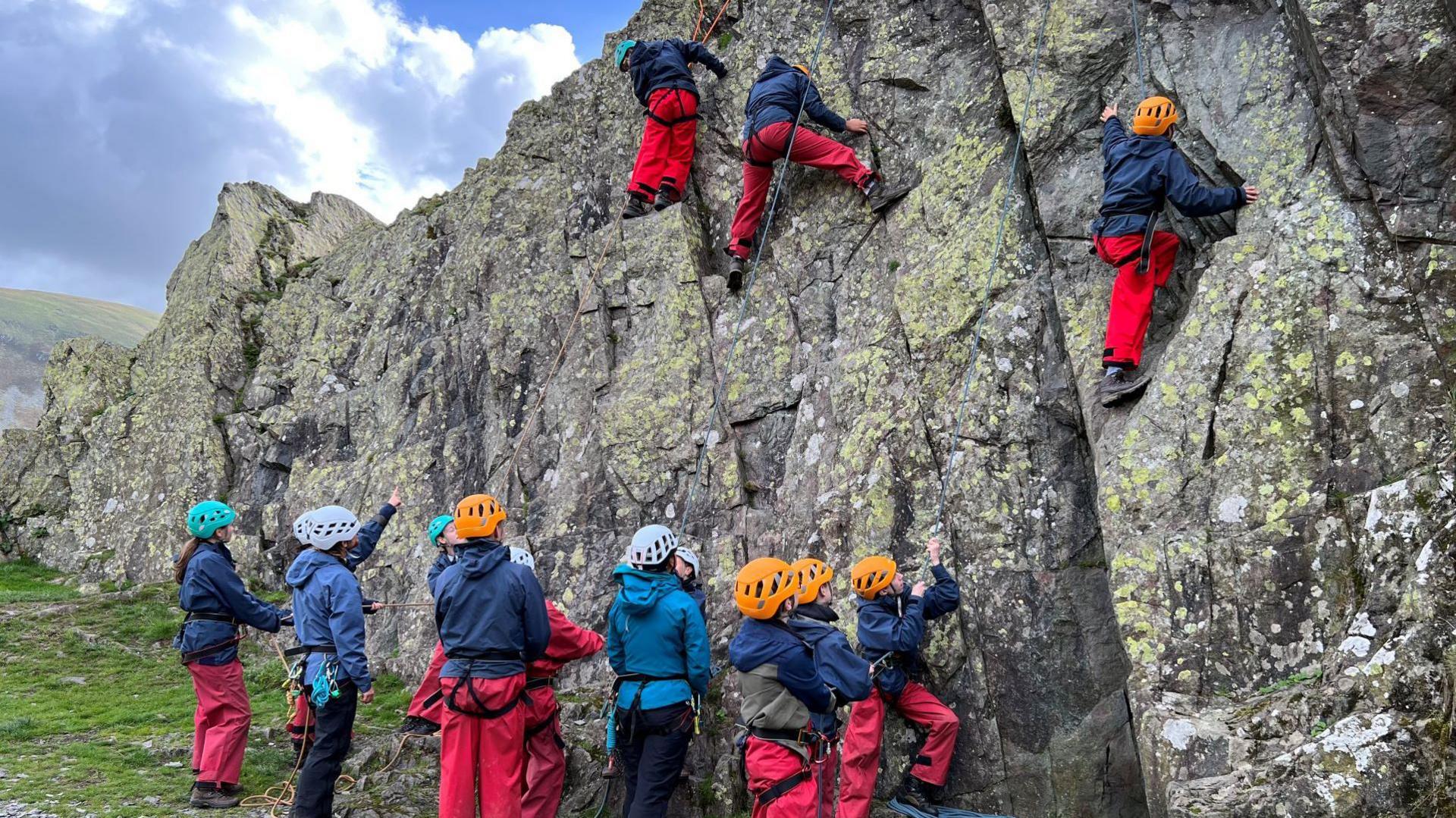
- Published13 April 2021
